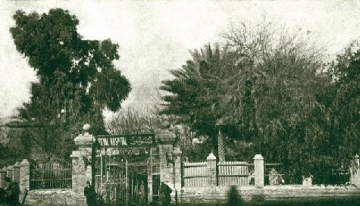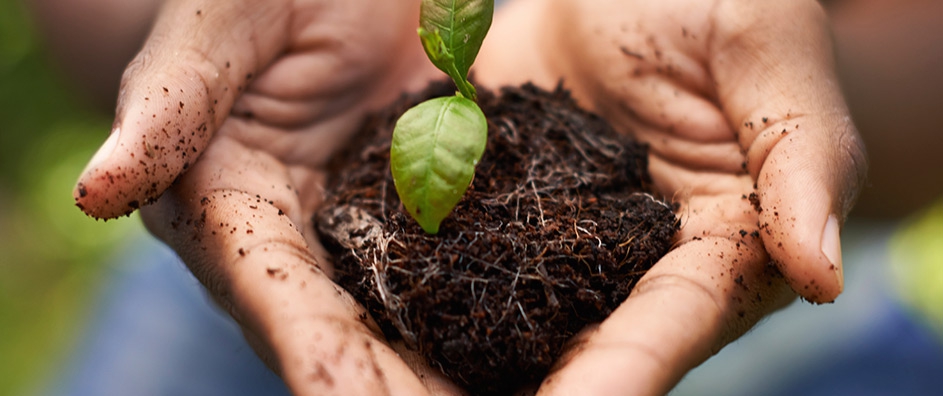The views expressed in our content reflect individual perspectives and do not represent the authoritative views of the Baha'i Faith.
A man of words and not of deeds,
Is like a garden full of weeds. – Benjamin FranklinWith the exercise of a little care, the nettle could be made useful; it is neglected and it becomes hurtful. It is exterminated. How many men resemble the nettle! …Remember this, my friends: there are no such things as bad plants or bad men. There are only bad cultivators. – Victor Hugo, Les Miserables
The world of humanity is in need of great improvement, for it is a material jungle wherein trees without fruit flourish and useless weeds abound. If at all there is a tree that beareth fruit it is overshadowed by the fruitless ones, and if a flower groweth in this jungle it is hidden and concealed. The world of mankind is in need of expert gardeners who may convert these forests into delectable rose gardens, may substitute for these barren trees ones that yield fruit, and may replace these useless weeds with roses and fragrant herbs. – Abdu’l-Baha, Selections from the Writings of Abdu’l-Baha, p. 282.

The holy books of the world’s great Faiths often use the metaphor of a garden to describe humanity. Every religion offers us both metaphorical and actual examples: the Garden of Eden; the Garden of Gethsemane; the Zen Buddhist gardens of the East; in American Indian lore the Happy Hunting Grounds or the Other Side Camp; the Elysian Fields for the ancient Greeks; the Islamic gardens of paradise and the afterlife called jannah in the Qur’an, or the worldly Islamic gardens at the Taj Mahal in India and the Alhambra in Spain; the Garden of Ridvan (paradise) on the shores of the Tigris River where the Baha’i Faith began, and the Baha’i gardens on the slopes of Mt. Carmel in Israel.
Symbolically, a garden represents the place where humans care for, cultivate and act as stewards of the natural world, where we tend, order, select, enclose and harvest the bounties of nature. Because of all that, a garden symbolizes our higher consciousness, as opposed to the wild forest, which represents the unconscious. Gardens stand for harmony, growth, fertility, beauty and the positive. The pastoral imagery of gardens in every Faith offers us a vision of a bounteous, balanced and ecologically pure place, a paradise where the waters of life flow and the fruits of our labors flourish and sustain us.
When we till the soil and plant food or flowers in a garden, we master the wild landscape, cultivating and bringing order to it. When we tend to our own inner life, we do the same thing—we cultivate the seeds of our thoughts, morals and emotions and allow them to grow, to blossom, to bring forth fruit, to express themselves in action. We lovingly water, feed and encourage the growth of the new seedlings when they sprout, guard them from pests and invasive weeds, and make sure they’re getting the proper amount of sunlight, moisture and nutrition.
In the same way we tend our seeds, we can tend our deeds:
What are the fruits of the human world? They are the spiritual attributes which appear in man. If man is bereft of those attributes, he is like a fruitless tree. One whose aspiration is lofty and who has developed self-reliance will not be content with a mere animal existence. He will seek the divine Kingdom; he will long to be in heaven although he still walks the earth in his material body, and though his outer visage be physical, his face of inner reflection will become spiritual and heavenly. Until this station is attained by man, his life will be utterly devoid of real outcomes. The span of his existence will pass away in eating, drinking and sleeping, without eternal fruits, heavenly traces or illumination — without spiritual potency, everlasting life or the lofty attainments intended for him during his pilgrimage through the human world. You must thank God that your efforts are high and noble, that your endeavors are worthy, that your intentions are centered upon the Kingdom of God and that your supreme desire is the acquisition of eternal virtues. You must act in accordance with these requirements… What are the requirements? Love for mankind, sincerity toward all, reflecting the oneness of the world of humanity, philanthropy, becoming enkindled with the fire of the love of God, attainment to the knowledge of God and that which is conducive to human welfare. – Abdu’l-Baha, The Promulgation of Universal Peace, p. 335.
Our scruples, our moral actions, our spiritual deeds—those ripe fruits of our lives—only come from careful cultivation.
We start out with the pure, altruistic motivations of childhood. Most children naturally want to help others, to be generous. Selfishness and possessiveness can be tempered, pruned and controlled, while parents can meet the positive, altruistic traits with praise and commendation. The intrinsic rewards of good actions and moral choices will soon train the tender plant to grow toward the light.
In youth and adolescence, enormous exuberance and enthusiasm to help others can be channeled into real-world projects and programs that allow older children and teenagers to expend their energies to benefit their local or global community. Education can focus on service to humanity. Even social life in the adolescent years can have an altruistic component.
In adult life, when families and jobs become the dominant reality, our deeds can reach out through the helping professions or just express themselves in the simple joys of helping friends and neighbors. As long as the plants of your life bear fruit by resulting in deeds and actions, your garden will flourish:
O People! The word must be demonstrated by the deed, for the righteous witness of the Word is action. The former without the latter shall not allay the thirst of the needy nor open the door of sight to the blind. – Abdu’l-Baha, Star of the West, Volume 1, p. 7.
















Comments
Sign in or create an account
Continue with Googleor